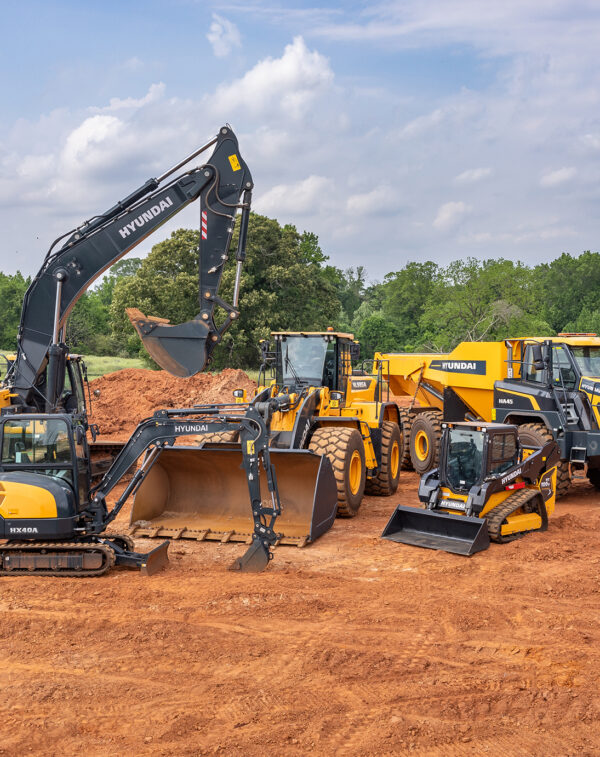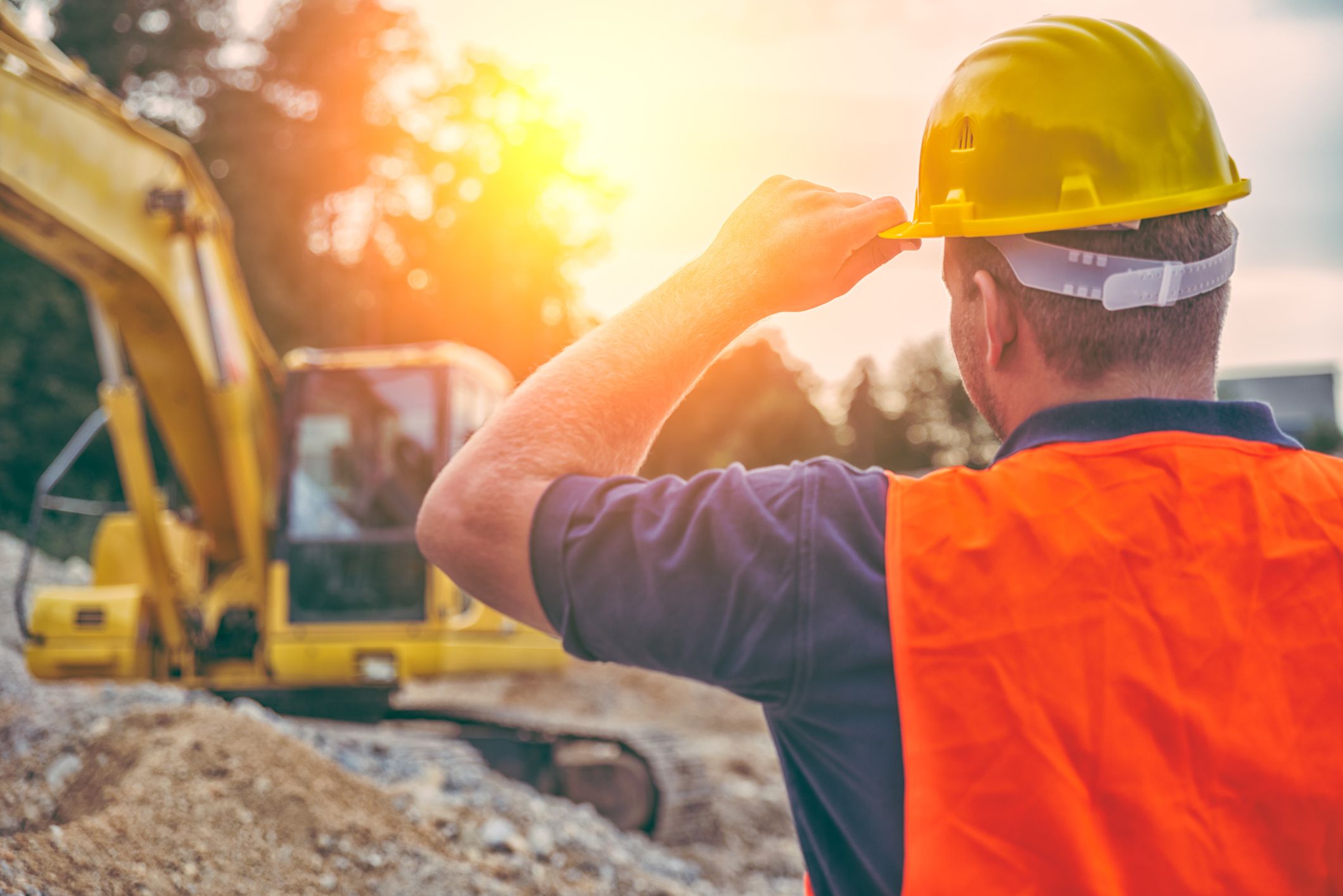Exploring the Financial Conveniences of Leasing Building Devices Contrasted to Owning It Long-Term
The decision between owning and leasing building and construction equipment is essential for economic management in the sector. Renting offers instant price financial savings and operational versatility, permitting companies to allot sources much more effectively. In comparison, possession comes with significant lasting financial commitments, including maintenance and depreciation. As contractors weigh these choices, the influence on money circulation, task timelines, and modern technology accessibility comes to be significantly substantial. Recognizing these nuances is vital, particularly when thinking about exactly how they line up with certain job requirements and monetary strategies. What factors should be prioritized to make certain optimum decision-making in this complicated landscape?

Cost Comparison: Renting Vs. Possessing
When evaluating the economic effects of leasing versus owning building equipment, an extensive cost contrast is necessary for making notified choices. The option between renting and possessing can significantly influence a business's profits, and recognizing the connected expenses is essential.
Renting out construction devices typically entails lower in advance prices, permitting companies to designate resources to other operational requirements. Rental costs can build up over time, potentially exceeding the expenditure of possession if tools is needed for an extended period.
Alternatively, possessing construction equipment requires a considerable preliminary financial investment, in addition to recurring costs such as depreciation, insurance coverage, and financing. While possession can result in long-lasting cost savings, it likewise connects up funding and may not supply the exact same level of flexibility as leasing. In addition, having equipment necessitates a commitment to its application, which might not constantly align with project demands.
Inevitably, the choice to lease or own must be based upon a thorough evaluation of particular project demands, economic capability, and long-term strategic objectives.

Maintenance Expenditures and Obligations
The choice between renting and owning building and construction devices not only includes financial factors to consider yet additionally includes continuous maintenance expenditures and duties. Having equipment requires a significant dedication to its maintenance, which includes routine inspections, fixings, and possible upgrades. These obligations can swiftly collect, resulting in unexpected prices that can stress a budget plan.
In contrast, when renting out tools, upkeep is commonly the duty of the rental business. This arrangement permits specialists to stay clear of the monetary burden connected with deterioration, as well as the logistical obstacles of organizing fixings. Rental agreements often consist of stipulations for maintenance, implying that contractors can concentrate on completing tasks rather than stressing about devices condition.
Additionally, the varied variety of equipment available for rent enables business to choose the most current models with sophisticated technology, which can improve effectiveness and productivity - scissor lift rental in Tuscaloosa Al. By opting for leasings, businesses can stay clear of the lasting obligation of equipment depreciation and the associated maintenance frustrations. Inevitably, assessing upkeep expenditures and responsibilities is critical for making an informed choice about whether to possess or rent out construction devices, dramatically impacting overall project expenses and functional performance

Devaluation Influence On Ownership

A significant aspect to take into consideration in the choice to own building devices is the influence of devaluation on total possession prices. Devaluation represents the decline in value of the equipment in time, influenced by aspects such as use, damage, and advancements in innovation. As tools ages, its market price lessens, which can significantly affect the owner's financial position when it comes time to offer or trade the devices.
For building and construction firms, this the original source devaluation can translate to substantial losses if the tools is not used to its fullest possibility or if it comes to be outdated. Owners have to make up depreciation in their economic forecasts, which can lead to greater general prices contrasted to renting. In addition, the tax implications of devaluation can be complex; while it might offer some tax obligation benefits, these are typically offset by the truth of reduced resale worth.
Ultimately, the worry of depreciation stresses the relevance of comprehending the lasting financial dedication associated with possessing building equipment. Business must meticulously examine how frequently they will certainly utilize the equipment and the prospective economic impact of depreciation to make an enlightened decision regarding possession versus renting.
Monetary Flexibility of Renting Out
Renting building tools supplies significant monetary adaptability, allowing business to allot sources much more effectively. This versatility is specifically crucial in a market identified by rising and fall project demands and differing work. By deciding to rent, companies can stay clear of the significant funding expense needed for acquiring equipment, preserving capital for other operational requirements.
Furthermore, leasing devices makes it possible for companies to tailor their equipment choices to particular project requirements without the long-term commitment connected with ownership. This implies that companies can quickly scale their devices stock up or down based upon existing and awaited task demands. As a result, this versatility lowers the risk of over-investment in machinery that might become underutilized or obsolete over time.
Another economic benefit of leasing is the capacity for tax benefits. Rental payments are often considered business expenses, permitting instant tax reductions, unlike devaluation on owned tools, which is spread out over a number of years. scissor lift rental in Tuscaloosa Al. This instant expense acknowledgment can additionally improve a firm's money setting
Long-Term Project Factors To Consider
When reviewing the long-lasting needs of a building organization, the decision in between leasing and owning devices becomes extra complicated. Trick elements to take into consideration include task duration, regularity of use, and the nature of upcoming jobs. old construction equipment for sale For projects with extensive timelines, buying tools may appear advantageous as a result of the potential for lower total costs. Nevertheless, if the tools will not be made use of consistently across tasks, owning might bring about underutilization and unnecessary expense on insurance policy, maintenance, and storage.
The building sector is evolving rapidly, with brand-new devices offering enhanced efficiency and safety and helpful hints security functions. This flexibility is particularly valuable for organizations that manage diverse tasks calling for various types of tools.
Moreover, financial security plays an essential duty. Owning tools typically entails substantial capital expense and depreciation concerns, while leasing allows for even more predictable budgeting and cash money flow. Inevitably, the option in between owning and renting out must be lined up with the strategic purposes of the building organization, taking into account both anticipated and existing project needs.
Verdict
In verdict, renting building and construction tools offers substantial financial advantages over long-term ownership. Ultimately, the decision to rent rather than own aligns with the vibrant nature of building and construction tasks, permitting for flexibility and accessibility to the most current devices without the monetary concerns associated with ownership.
As equipment ages, its market worth lessens, which can significantly affect the owner's monetary position when it comes time to offer or trade the tools.
Renting construction equipment offers considerable monetary flexibility, allowing business to allocate sources more successfully.Furthermore, renting equipment makes it possible for firms to customize their equipment selections to details job requirements without the lasting dedication associated with possession.In final thought, renting building and construction devices provides substantial economic advantages over lasting ownership. Ultimately, the choice to rent instead than own aligns with the vibrant nature of building tasks, enabling for versatility and access to the most current equipment without the economic concerns linked with ownership.